He wasn't the man who founded the franchise, and he had no stake in its ownership. Even so, it was Chuck Noll who created the Pittsburgh Steelers, because everything they are today was what he taught them to be.
Mr. Noll died in his sleep Friday night from natural causes in his Sewickley home. He was 82.
"As for the football end of it, I think he ranks with Halas and Lombardi," said Steelers Chairman Dan Rooney. "There have been many other good coaches over the history of the NFL, but I think Chuck Noll ranks up there with those other two guys right at the top. No other coach won four Super Bowls, and the way he did it was with dignity."
When Mr. Noll was hired in 1969, the Steelers franchise that entered the NFL in 1933 still was without a championship of any kind, it was one that had enjoyed just eight winning seasons among its first 36 in existence. In the 44 full seasons since hiring Mr. Noll, the Steelers have finished with a winning record 31 times, they have been division champions 20 times, made the playoffs 26 times and remain the only NFL franchise to win six Super Bowl championships. Mr. Noll's direct contributions included 15 winning seasons, nine division championships, 12 playoff appearances and four Super Bowl championships, all of which served as the foundation for all that followed.
Mr. Noll retired as coach of the Steelers on Dec. 26, 1991, and on that day his career properly was lauded, because no man in his profession ever has taken a team to four Super Bowl championships, no other coach ever has repeated as Super Bowl champion twice. And given the disdain contemporary coaches and their employers both tend to have toward those quaint qualities of loyalty and patience, those accomplishments might never be matched. His players, his adversaries, his peers all will be digging deep into their vocabularies now to assign words to a man who seemed to spend a lifetime defying description.
Chuck Noll never was fond of attention, but he was far from the cold, calculating persona that somehow was assigned to him. But even if you didn't know Chuck Noll, you knew things about him. You learned qualities the man possessed simply by being in his presence.
His values were of such solid stock that Dan Rooney's wife, Patricia, once told her husband that should anything happen to them she wanted Chuck Noll to raise their children.
God-fearing, intelligent, dignified, a man of integrity and class, Chuck Noll was all of that, and likely a lot more. But trying to label Mr. Noll, trying to package him to satisfy one's insecurities was impossible, and it truthfully did a tremendous disservice to the man. With greatness comes a certain mystique, and Chuck Noll possessed equal measure of both.
PLAYING THE UKULELE, CONDUCTING THE SYMPHONY
To his players, Mr. Noll seemed detached. He was all business, no frivolity. But every now and then …
It was during one Christmas season in the late 1970s as Lynn Swann remembers it, when he invited a bunch of teammates to his home for a tree-decorating party. Possibly motivated by the spirit of Christmas, or possibly some other brand of spirits, the players decided to go caroling. They went to Dan Rooney's house, and the reception they got there was so warm that Swann suggested the next stop be Mr. Noll's house.
Even though they were grown men with enough toughness to thrive in the violent world of professional football, the prospect of an unannounced visit to their coach's home was daunting. But they made sure they arrived before their 11 p.m. curfew for the night, knocked on the front door of Mr. Noll's home and started singing.
The door opened, and Chuck and Marianne Noll were delighted. The players were invited into the home, and it wasn't long before Mr. Noll picked up his ukulele, which was a shock to them, and then started playing it, which knocked them over like few NFL opponents ever could. Who among them ever would have believed that their Coach Noll owned a ukulele, let alone would play it in their presence.
"I thought we were breaking the ice," Swann remembered. "We're getting to the core of this man, this is great. Wonderful. A breakthrough. The next morning, we walk in there, and I thought we were going to have a new relationship. He looked at us, and nodded his head. It was like we were never in his home for a second. He never acknowledged it. But that was Chuck."

More than a decade later, the Pittsburgh Symphony Orchestra traveled to Saint Vincent College during a Steelers' training camp to play a brief benefit concert in a tent that had been set up on a patch of grass adjacent to the fields the team used for practice. Mr. Noll was asked to be a guest conductor for one song – "Stars and Stripes Forever" – as something of a grand finale for this feel-good evening.
Sufficiently ego-less to realize he was dramatically out of his element, Mr. Noll demurred, but then a Symphony official made a pitch to change his mind.
It's really not that big a deal to conduct the Symphony, Mr. Noll was told. All you have to do is get them started, the man continued, because once the musicians begin playing it's really out of the conductor's hands; he has very little control of what happens next.
Mr. Noll deadpanned, "Sounds a lot like my job."
He took the baton, handled it flawlessly, and enjoyed every minute of it.
ONE SPEECH, ONE TIME
Rah-rah was not Mr. Noll's style. He believed in having players who motivated themselves, because in his mind false bravado vanished the first time an opponent knocked you on your butt.
This was precisely why, Joe Greene says, the one motivational speech Mr. Noll did give to the team was so powerful.

"We had played Buffalo in the first round of the 1974 playoffs, and that's when we really introduced the Stunt 4-3, because we were desperate to stop O.J. Simpson, who had put up almost 200 yards rushing the last time he played against us," said Greene as he set the scene. "The reason we had been losing in the playoffs was because other teams were running the football on us. Miami did in 1972, and Oakland did it in 1973.
"The thing that really, really gave us the impetus and the mind-set, and gave us – as Chuck always said – the refuse-to-be-denied attitude – came on the Monday after we beat Buffalo in the first round of the playoffs in 1974, the start of the week of practice before we went to Oakland for the AFC Championship Game. People on the outside would always hear things like the refuse-to-be-denied attitude and call that a cliché, but to us it was real. But anyway, we were sitting in the team meeting room over at Three Rivers Stadium, and Chuck said, 'You know, the coach of the Raiders said the two best teams in football (Miami and Oakland) played yesterday, and that was the Super Bowl.' He said, 'Well, the Super Bowl is three weeks from now, and the best team in pro football is sitting right here in this room.'
"I'm telling you, I think I levitated right out of my seat when I heard that. There was no way that the Raiders were going to beat us. Again, it all came from the consistency of Chuck, because when he said that, it was very un-Chuck-like and that's why it had so much power to it. It was almost like it happened yesterday."
**
BUILDING THROUGH THE DRAFT**
After Bill Austin was fired following a 2-11-1 finish in 1968, the Steelers' search for a coach first brought them to Joe Paterno at Penn State. The fit wasn't right, though, and when Paterno removed himself from consideration, Dan Rooney kept coming back to Baltimore Colts assistant Chuck Noll.
Even though the Colts had just lost to the New York Jets in Super Bowl III, the Steelers weren't the only team with an interest in interviewing Mr. Noll, who had worked as an assistant on Coach Sid Gilman's staff with the San Diego Chargers for six seasons before spending the next three on Don Shula's staff with the Colts.
"I thought that this probably was the place to come," said Mr. Noll about his decision to accept the Steelers' offer. "I talked to Dan Rooney, got a feeling for what they wanted to do, and he liked the thoughts that I had.
"What we wanted to do was build through the draft. They had a history of trading away a lot of people in Pittsburgh before that. My experience coming up through the American Football League was drafting people and then teaching the skills to play professional football. That's the way that I knew how to do it, and that's the way Dan wanted to go, so it meshed well.
"(At the time) there were a lot of teams that wanted to segregate coaching and scouting. I don't think you can do that. I think it has to work together. It has to be a team, completely, not only on the field, but off the field as well. I was very comfortable that the Steelers would go in that direction."

The Colts lost to the Jets in Super Bowl III on Jan. 12, 1969. Fifteen days later, the Steelers hired Chuck Noll to be the 14th coach in the franchise's history. The next day, Jan. 28, was the start of the 1969 NFL Draft, and the Steelers held the fourth overall pick.
At that time there was some pressure from the fan base to pick Notre Dame quarterback Terry Hanratty, and selling tickets was an issue for the team in those days. But with the fourth pick of the 1969 NFL Draft, the Pittsburgh Steelers selected Joe Greene, defensive tackle from North Texas State. The move was welcomed by a headline in the morning newspaper that read: "Joe who?"
"Well, I had worked Joe out specifically. I had known of him, and that was an important thing," said Mr. Noll. "He was a young man who had a great desire to be the best. That's what we needed. We needed those kinds of people. He fit the whole profile. Attitude-wise, talent-wise, you know, he could be a dominating player. We needed help in our defensive line. Some people didn't think so, but that pick got us what we needed – to be able to rush the passer and control that line of scrimmage.
"Before you can win the game, you have to not lose it. That's the premise. So it begins with defense, and defense can set up offense. I had been exposed to scoring lots of points and having no defense, then losing the game. Just because you're running up and down the field, you know, that may be exciting to the fans, but it's not very exciting when you lose."
The Steelers utilized the NFL Draft to build a team that won four Lombardi trophies in six seasons, a run of success unmatched by any other franchise during the Super Bowl era. Mr. Noll's commitment to picking the best player available initially was revealed via the Greene selection in 1969, but his commitment to the draft was cemented by the decision made one year later.
With identical 1-13 records in 1969, the Steelers and the Chicago Bears shared the worst record in the NFL and so were tied in the race for the prize that was the first overall pick of the 1970 NFL Draft. At the time, ties were broken by a coin toss. The Bears called "heads." It was "tails," and the Steelers would make the first pick of the draft.
The consensus No. 1 overall pick that year was a Louisiana Tech quarterback named Terry Bradshaw. And since the Steelers were the franchise that had traded away its No. 1 pick in six of the previous 11 drafts, the offers started pouring in from other teams. The St. Louis Cardinals offered a package of eight players, including a second-year cornerback named Roger Wehrli, who would go on to be inducted into the Pro Football Hall of Fame.

The Steelers picked Bradshaw.
"You know, the number of players you're going to get is not going to help your football team. You have to have quality people," said Mr. Noll about that decision. "So if you trade away quality for less than quality, you're going to be a less than quality football team. And what we were after were top-notch players. Terry fell into that category, and that's what we were trying to get through the draft – top quality people."
Bradshaw remains the lone NFL quarterback to start for four Super Bowl champions, and he's one of only five quarterbacks to win that game's MVP award more than once.
THE TEAM'S BEST PLAYER ON THE TEAM'S BEST COACH
Joe Greene was the first player drafted to the Steelers by Chuck Noll, and Dan Rooney unequivocally calls him the greatest player in franchise history. Greene offered his thoughts on what made Chuck Noll a great coach.
"He taught us this: Take care of what you can control, and don't get weighed down by things beyond your control. Pay attention to instructions and then ask the right questions all the time. If you don't understand, then ask. Seek the answer if you don't have it. Don't pretend that you do know when you don't know. Be honest with yourself.
"That's was always the first thing I used to tell the young men I coached: In order to get from A to B, first you have to be truthful with yourself. You have to fess up. If you did something wrong in terms of trying to have success on the football field on a particular down, in order to get rid of that – as Chuck always said, 'You have to replace bad habits with good habits' – you first had to know that was a bad habit. A lot of times those things are trivialized by calling them clichés. To us, they weren't. They were a way of life.
Photos of Pittsburgh Steelers Hall of Fame head coach Chuck Noll.


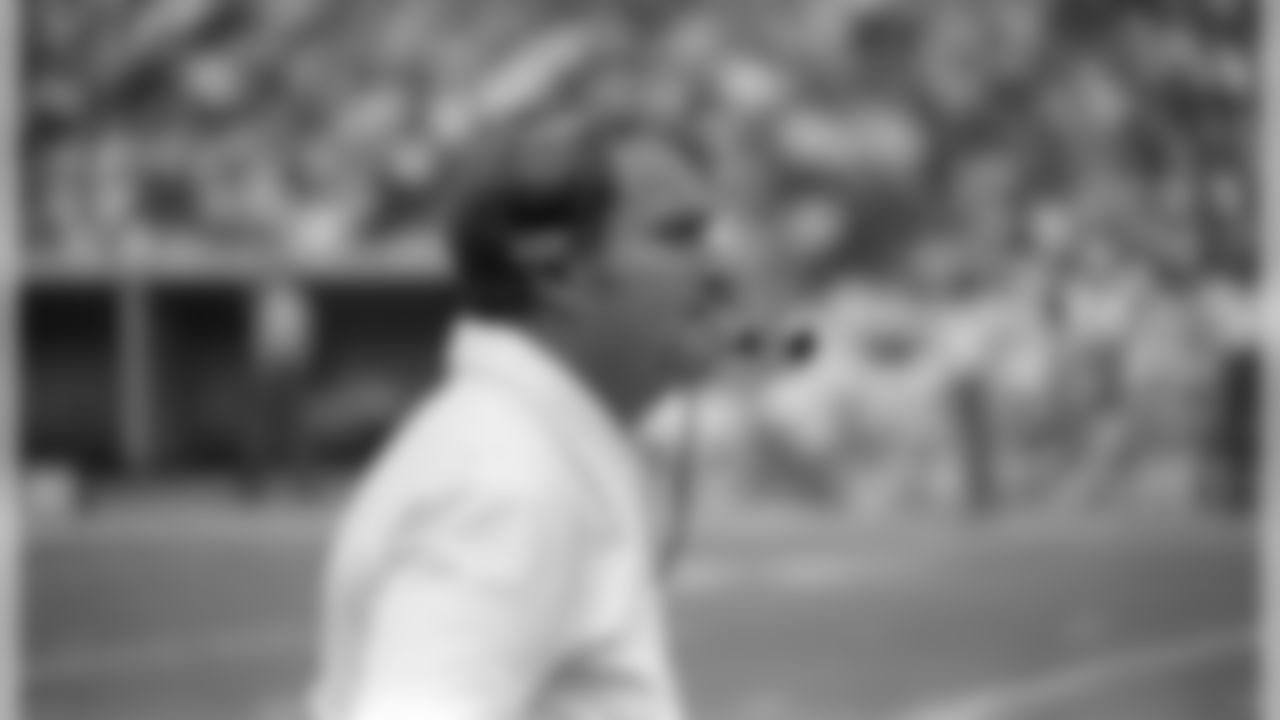


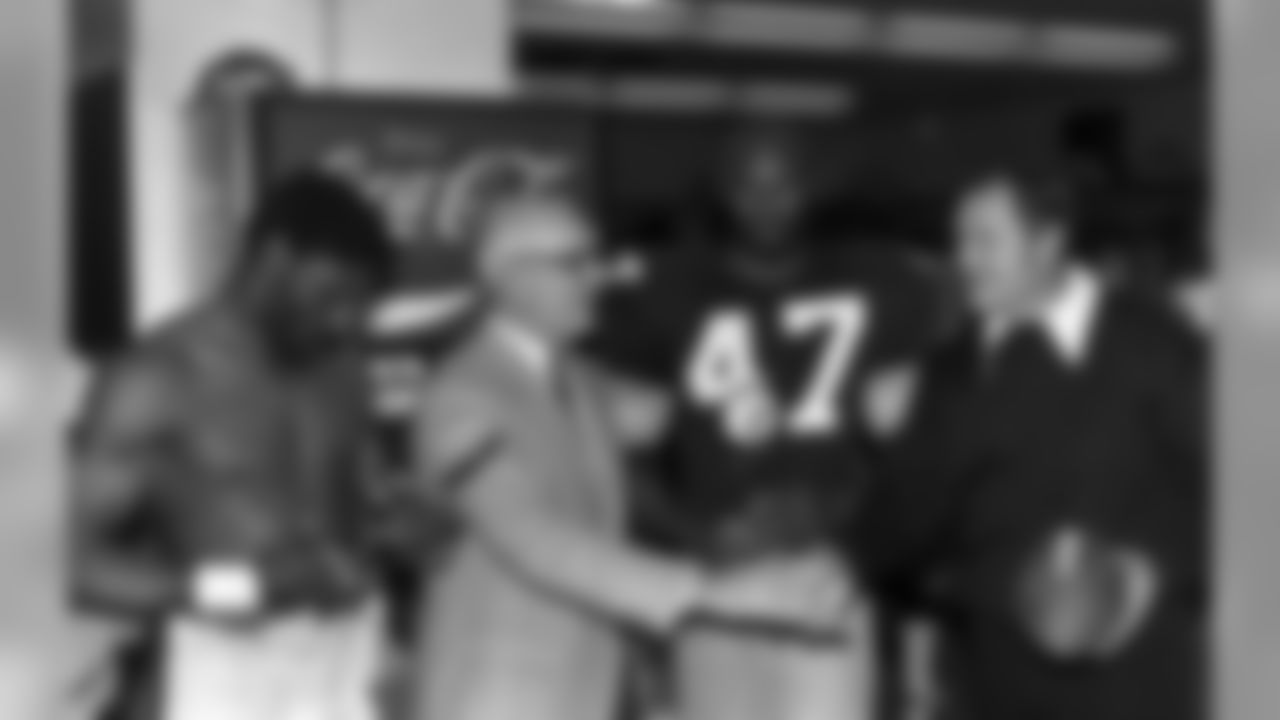

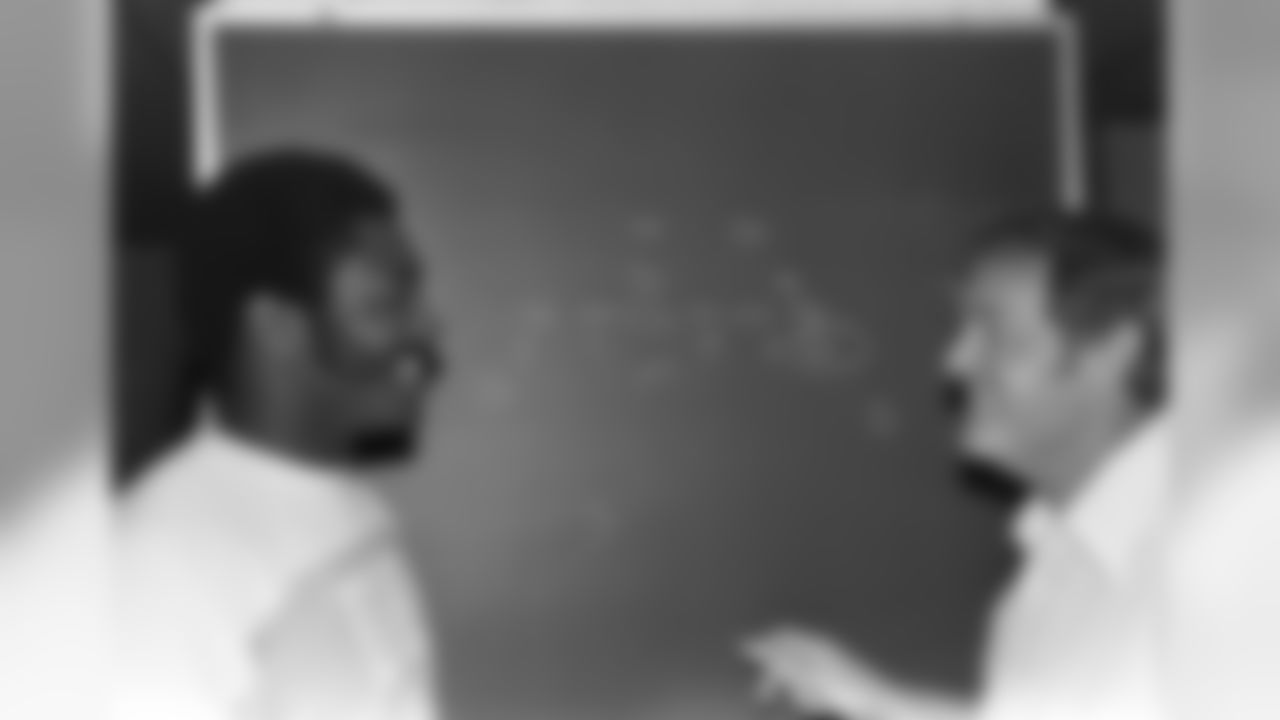


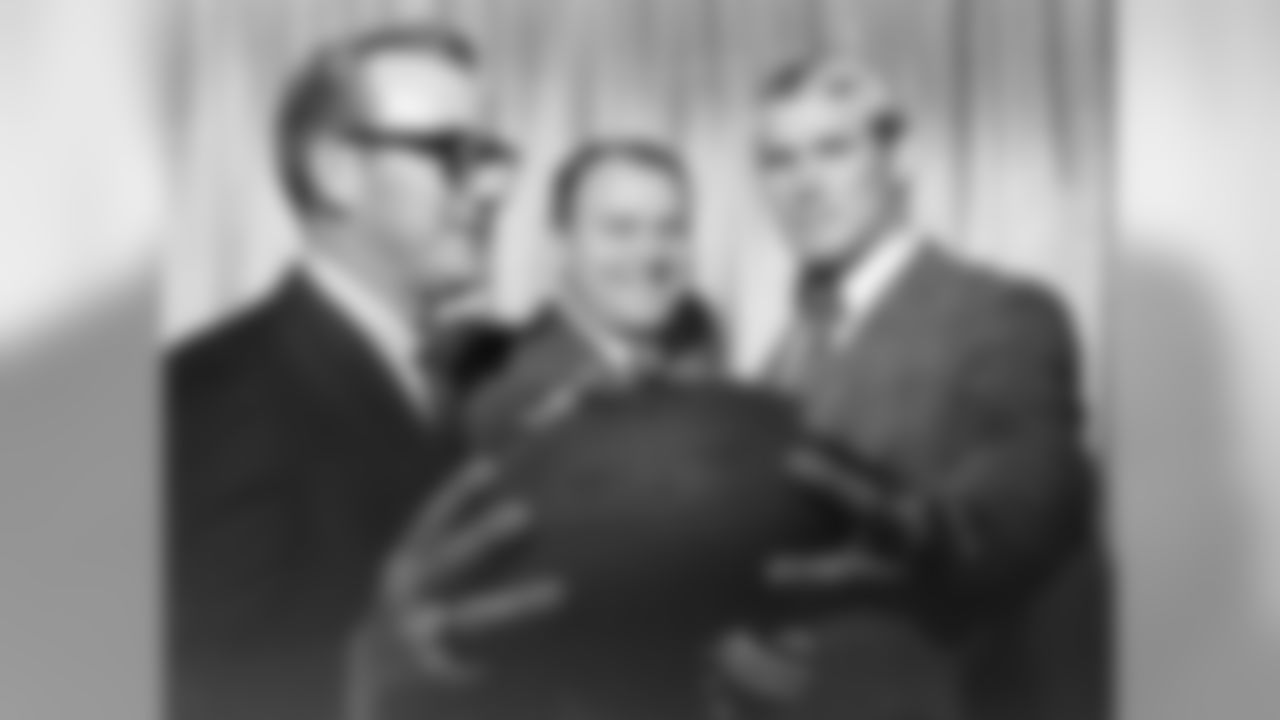
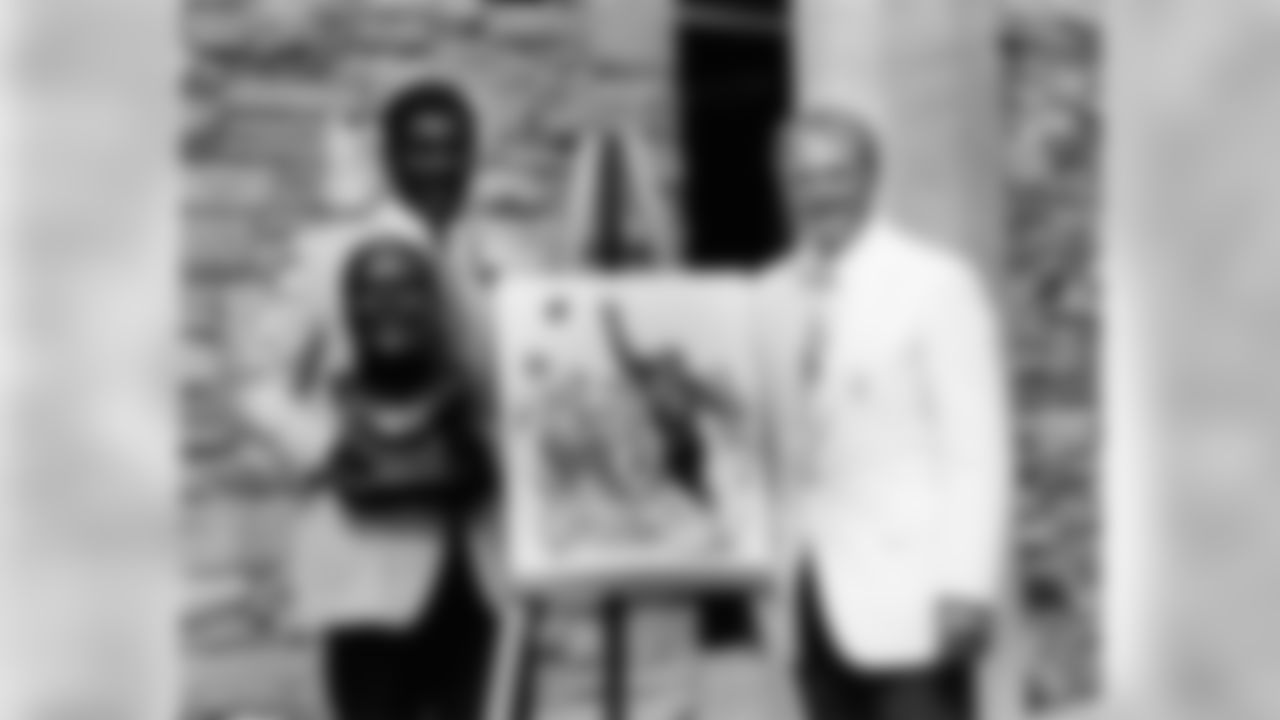
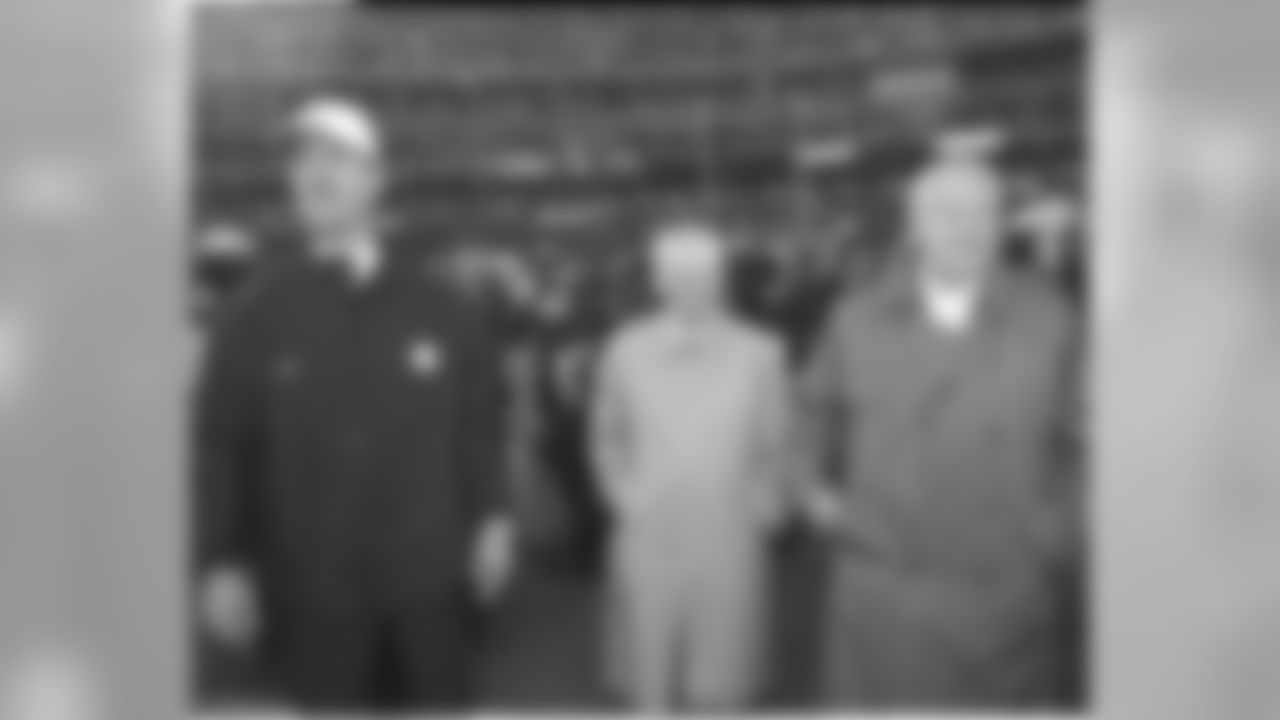

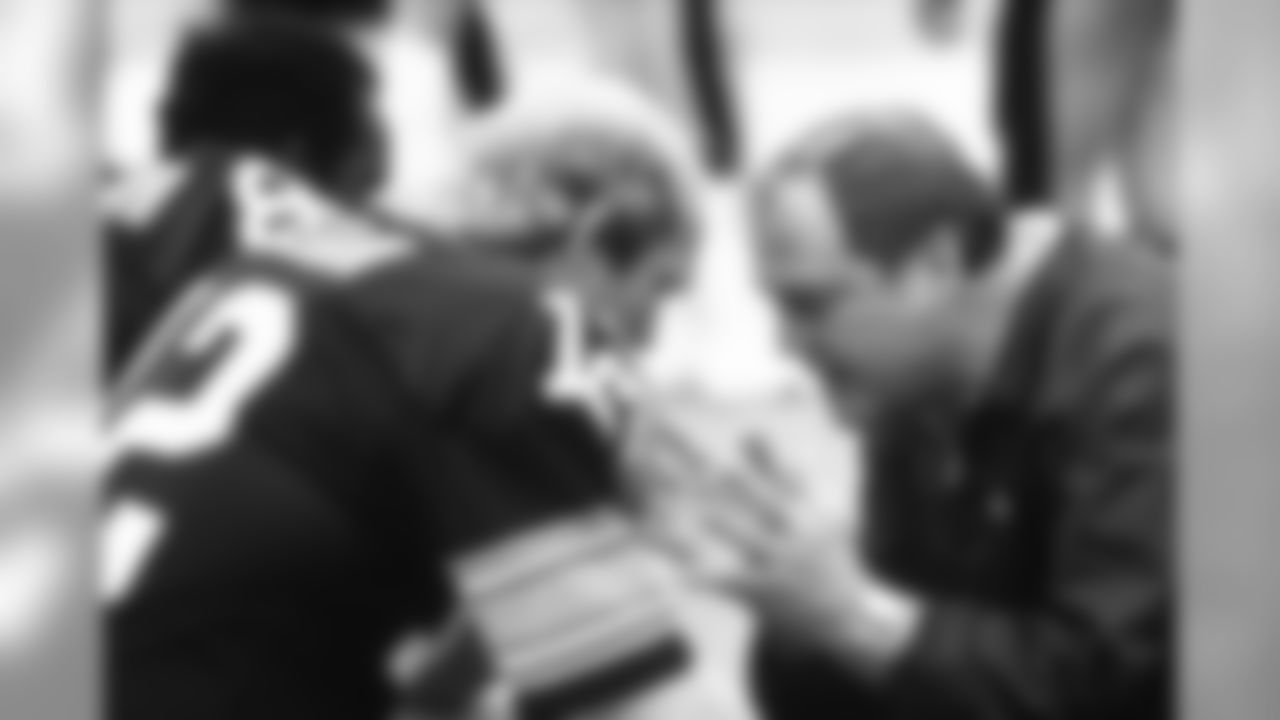
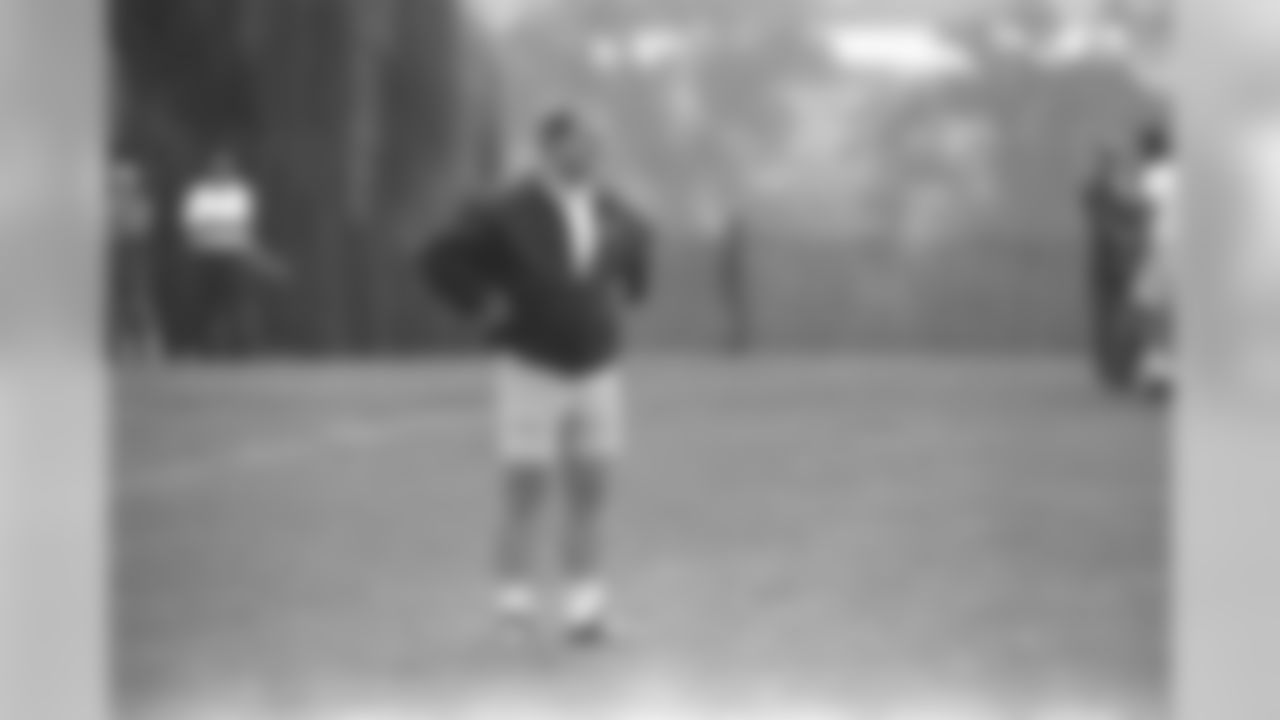
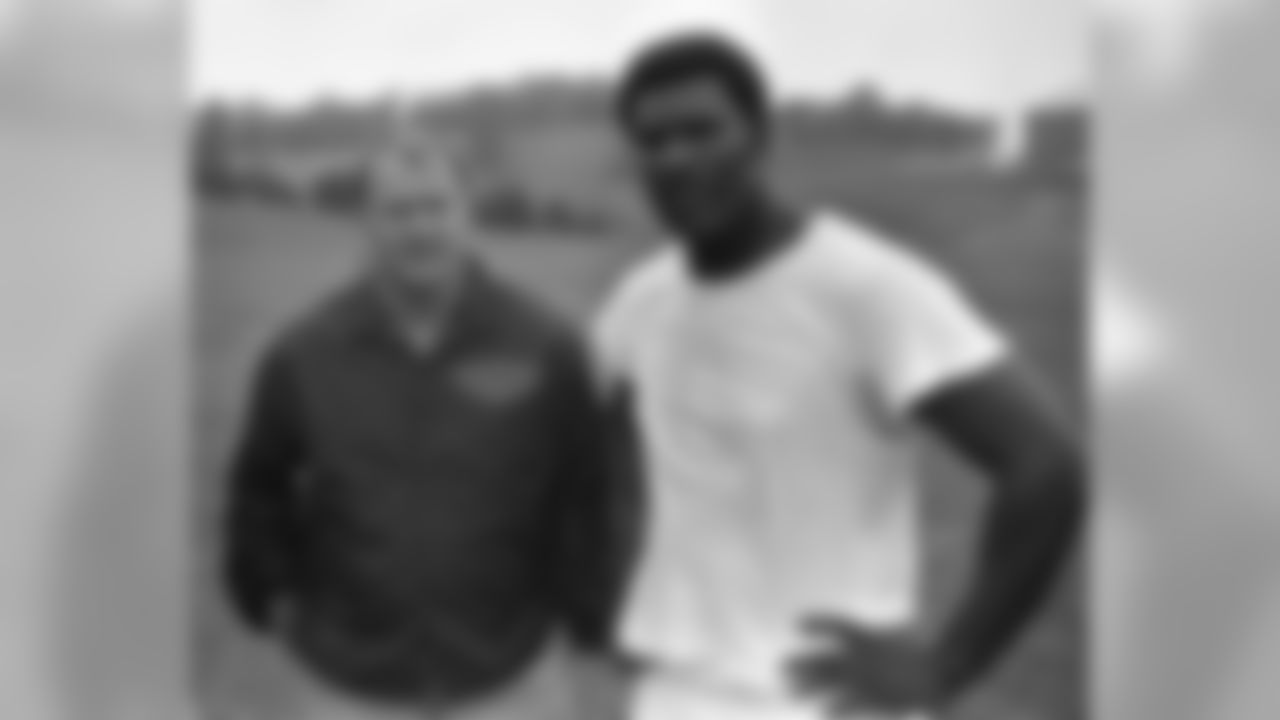

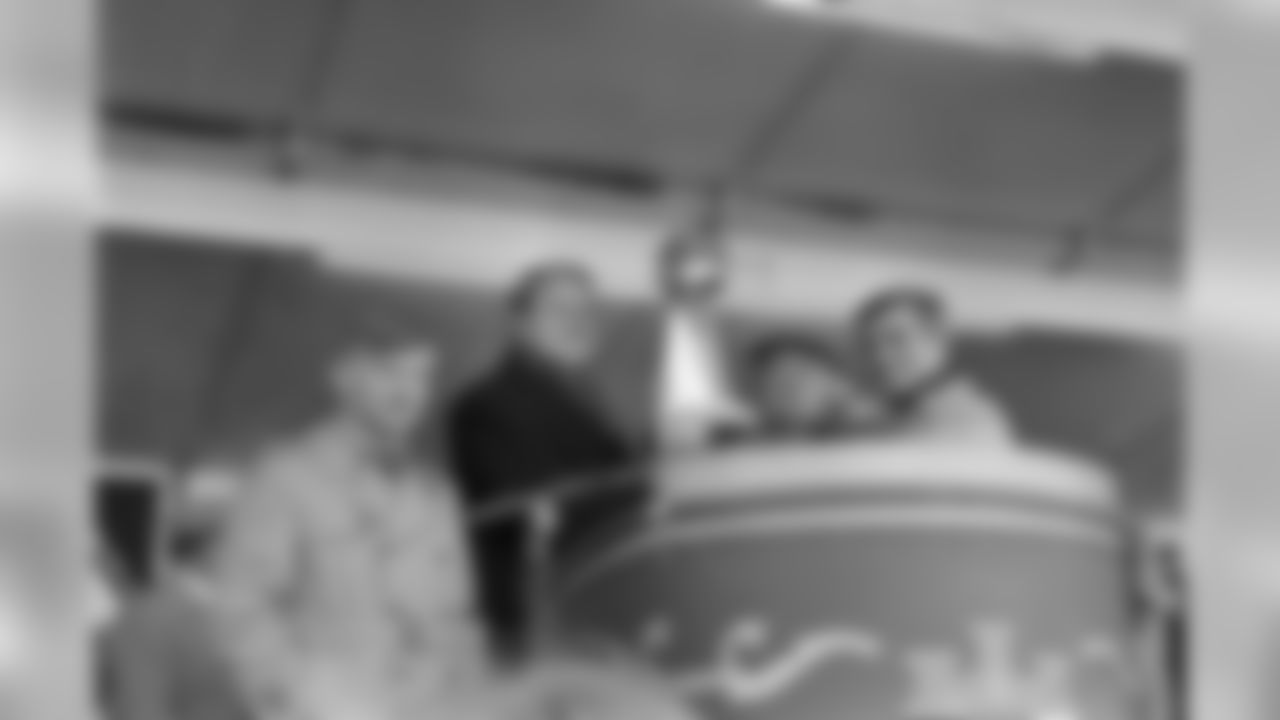

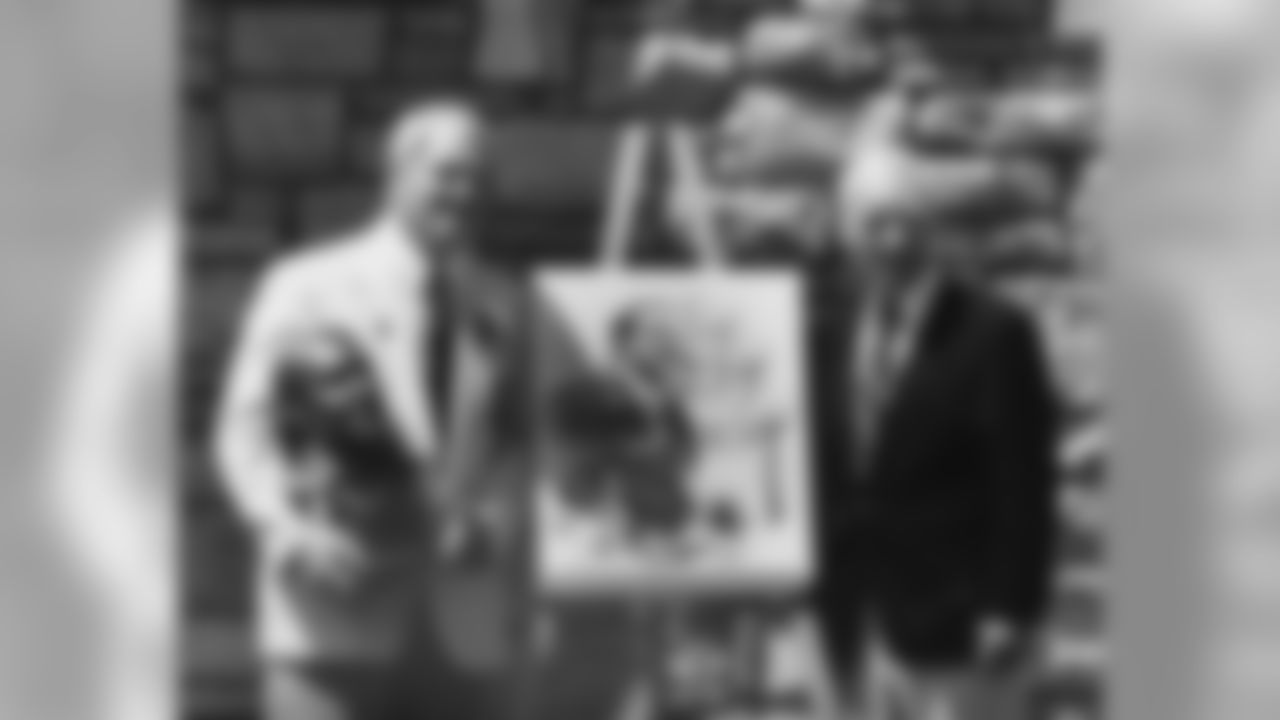

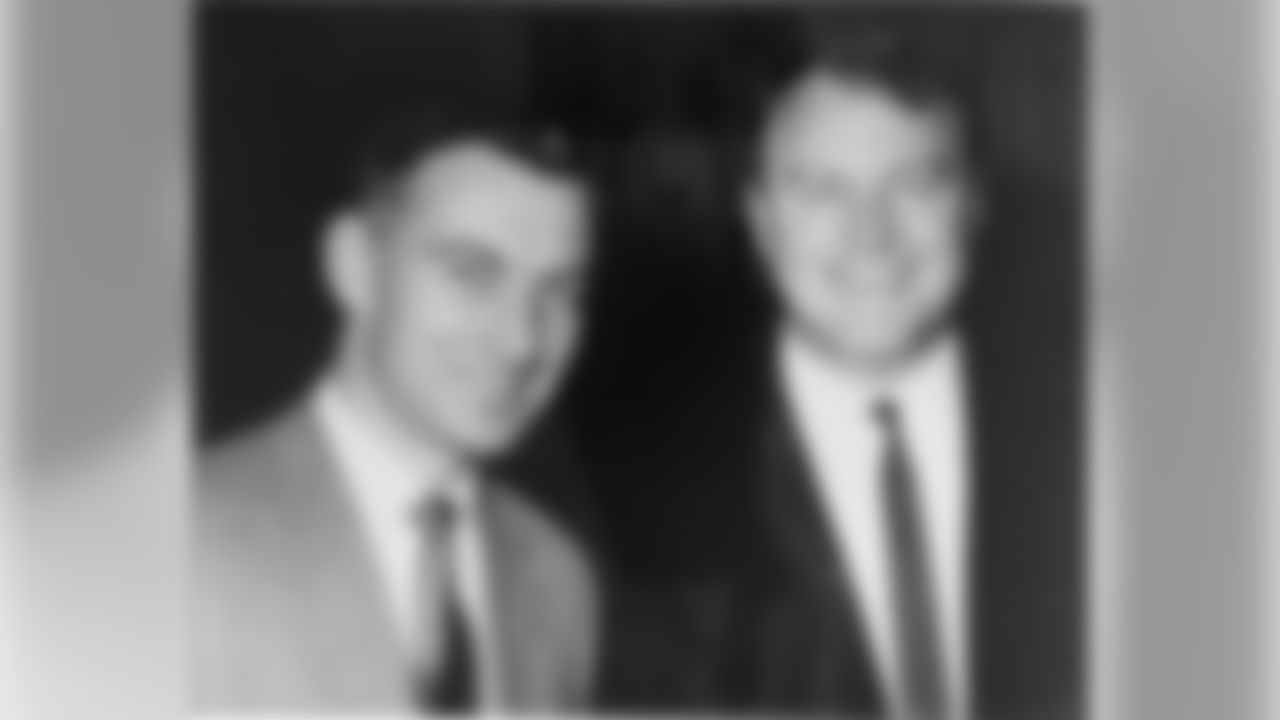
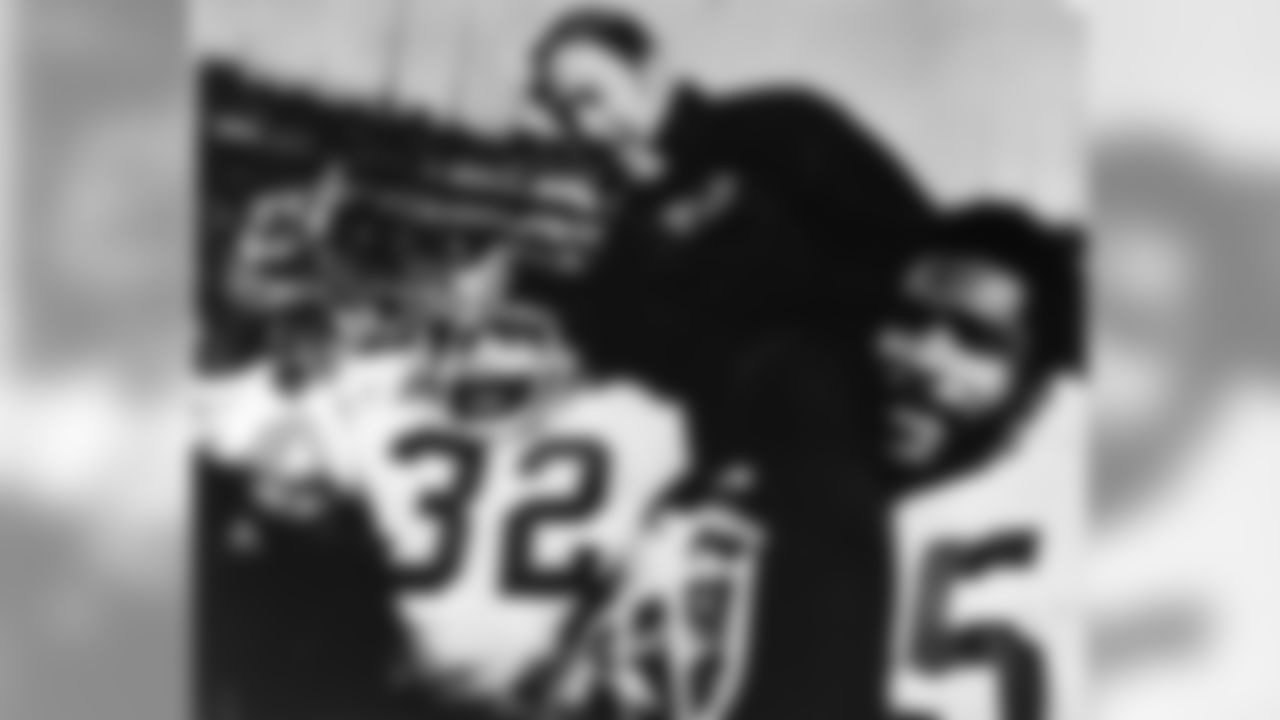
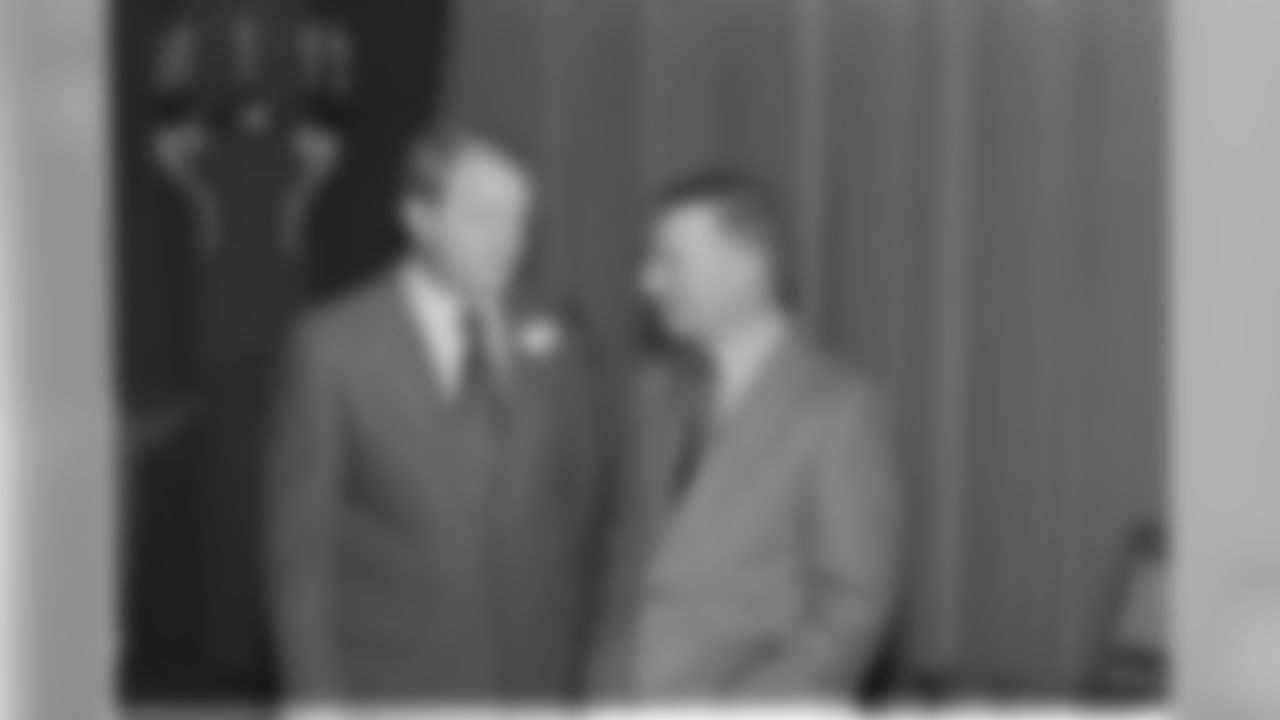
"Chuck practiced what he preached. That was his lifestyle. Over all those years, he was solid and stable and didn't waver. When you look back at those teams, a lot of us learned well. The questions asked of me right now, you could probably ask 20 other guys on those teams, and the answers would be the same. That's because we got it all from the same guy."
There are 10 coaches in NFL history, which dates to 1920, who have won more than three championships during their careers. They are George Halas (six), Curly Lambeau (six), Vince Lombardi (five), Chuck Noll (four), Guy Chamberlin (four), Paul Brown (three), Weeb Ewbank (three), Bill Walsh (three), Joe Gibbs (three), and Bill Belichick (three), but Mr. Noll is rarely mentioned in most conversations about the NFL's all-time greatest coaches.
"I think he's acknowledged when his name comes up, because they have to acknowledge the winning and the tradition and the style of play he put together," said Greene. "That's why the fondness for the Steelers of the 1970s has had such a long life – because we played with a style that was his. It was always amazing to me that people would confuse Chuck Noll with another football coach named Chuck (Chuck Knox of the Buffalo Bills and the Los Angeles Rams), and that they would spell Chuck Noll's surname with a K. Maybe it was because he didn't cater to the media. He was respectful, and that's what he always told us, that the media had a job to do even though it was different than our job, and that we should respect them. He had an appreciation for the media, but he never played up to them, and maybe that's why he's underappreciated."
HIS EARLY YEARS
Charles Henry Noll was born in Cleveland, Ohio, on Jan. 5, 1932, the youngest child of William Noll and Katherine Steigerwald Noll. Their neighborhood in East Cleveland had a large African-American population, and as a young boy Chuck Noll played on a local football team that included Harold Owens, the nephew of Olympic star Jesse Owens.
Mr. Noll attended Benedictine High School where he played running back and tackle, and he won All-State honors and later a football scholarship to the University of Dayton, from where he would graduate with a degree in secondary education.
But it was during his youth in East Cleveland where Mr. Noll became "color-blind."
That ability to view a man's race as insignificant allowed Mr. Noll to be among the first coaches in the NFL to welcome – without quotas – the players scout Bill Nunn was finding for him from all-black colleges.
"The whole structure started to change," Nunn once said about Mr. Noll's racial view. "To me, Dan and Chuck were the same type of person. I don't think they see color, and I don't say that about a lot of people. I say that sincerely. When we used to line up the draft board, Chuck wasn't concerned with the dots. There was a time when dots (to designate a player's race) would be put up on the draft board. That's the way teams did it."
Upon graduating from Dayton where Mr. Noll was a lineman/linebacker and a co-captain, he was drafted on the 20th round of the 1953 NFL Draft by Coach Paul Brown of the Cleveland Browns. When Mr. Noll retired in 1959 at the age of 27, he had been a linebacker and then a messenger guard on teams that played in four NFL Championships and won two.
Mr. Noll's first coaching job in professional football was on Sid Gillman's staff with the Los Angeles/San Diego Chargers of the American Football League. After working there as a defensive assistant from 1960-65, Mr. Noll was hired in 1966 by Don Shula, then the coach of the Baltimore Colts, where he worked through Super Bowl III in January 1969.
BORN IN CLEVELAND, BUT A PITTSBURGH GUY
Lost amid the mounds of statistics that chronicle his career – and even those four Lombardi trophies – is what Noll did for the city of Pittsburgh and for Steelers fans.
In the 1960s, and in the three decades prior to that one, football was not a very stable enterprise in Pittsburgh, because the history of the franchise to that point was nothing but a combination of frustration and futility. The dawn of the television age was about to raise the NFL into its golden era, and the combination of losses and empty seats in Pitt Stadium was threatening to leave the Steelers behind.
But then along came Chuck Noll, and he brought with him a no-nonsense demeanor and a singleness of purpose. It has been well-documented that in his first meeting with a team that had been 18-49-3 in the five seasons before his arrival, Mr. Noll promised the players two things: that the Steelers' goal was to win the Super Bowl and that most of them weren't good enough to be there when it happened. Then in one of his initial press conferences, Mr. Noll responded to a question about why he thought he was the man to bring winning football to Pittsburgh with, "Losing has nothing to do with geography."
As he often was in matters of football, Mr. Noll was correct, and in the process he made winners of us all.
A city that at the time was gripped by the corrosion of the steel industry, a people as yet unprepared for the transformation from heavy industry to high technology were handed a reason to be proud. Chuck Noll's Steelers grew and evolved, and then they grabbed the National Football League by the throat and held on tight for the eight calendar years between 1972-79. And glorious years they were.
You could mock a Pittsburgh guy for the way he talked or laugh at him for where he lived or pity him because of where he no longer worked, but when the discussion turned to football and the Steelers, you shut your mouth. Those Pittsburgh Steelers were the best, and love them or hate them, the best demanded respect.
Chuck Noll made the Pittsburgh Steelers the best in 1974, and then he also was the man who kept them there through the rest of that decade. Even with so many reasons to stumble after they reached the pinnacle for the first time with that win in Super Bowl IX, it was Noll's strength and determination and value system that prevented it from happening.
The people of Pittsburgh always have and always will possess a certain pride in themselves and their way of life, and the Steelers' unprecedented success gave them a reason to flaunt it. Under the administration of the late Mayor Richard Caliguiri that began in 1977, Pittsburgh transformed itself from steel town to corporate headquarters, but Chuck Noll's role in the metamorphosis of the city should not be underestimated. If Caliguiri reconstructed the people's city at that time, it was Chuck Noll who rebuilt their psyche.
Chuck Noll had a positive impact on an entire populace by giving them a reason to be proud, by allowing them to be champions at a time when not a lot of other things in their lives were successful. Pittsburgh has changed considerably since Chuck Noll arrived here in 1969, and everyone should understand this is not a coincidence.
At the news conference called to announce his retirement on Dec. 26, 1991, Mr. Noll quoted Ralph Waldo Emerson. "Your actions speak so loudly, I can't hear what you're saying." The point being that what people do is more important than what they say.
And so it was with Chuck Noll.















